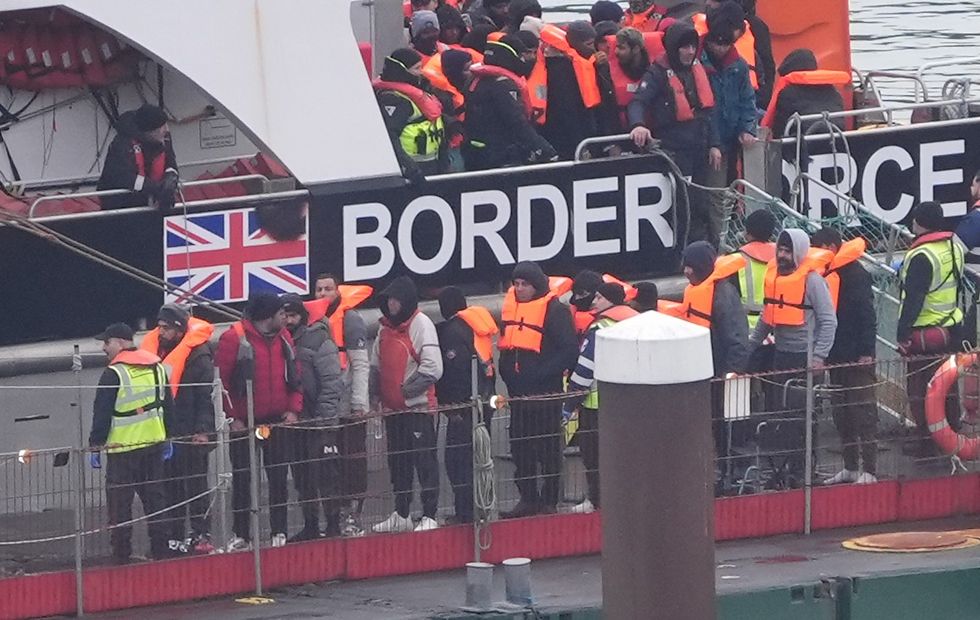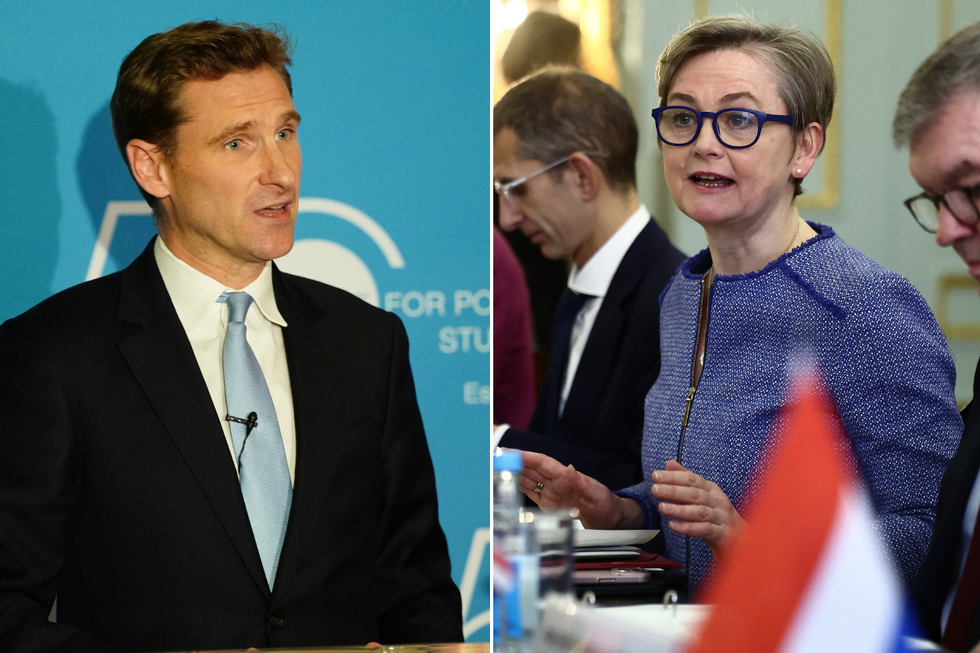Susanna Siddell
Guest Reporter
Suspected people smugglers will face internet and phone bans in Labour's latest migrant crisis crackdown outlined in Keir Starmer's Border Security Bill.
The Home Office has announced that suspects will face severe curbs including bans on travel, internet use, and mobile phone access as part of a major expansion of court orders designed to crack down on small boat crossings.
The measures will allow authorities to apply for restrictions to be imposed on individuals even before arrest, marking a significant shift in enforcement powers.
The restrictions could include social media blackouts, bans on communications with specific individuals, curfews and limits on access to finances, with measures varying case by case.

Anyone found to be breaching these orders would face criminal charges carrying a maximum prison sentence of five years, according to the Home Office.
The new powers will extend beyond people smuggling cases to target suspects involved in other serious crimes, including drugs trafficking, terrorism, money laundering, fraud and firearms offences.
Some MPs have questioned the effectiveness of powers that only apply within the UK, given that many smuggling operations are run from northern France.
Last year saw the second highest number of small boat crossings on record, with 36,816 people arriving - a 25 per cent increase compared to 2023.
It was also the deadliest year in the Channel, with French authorities reporting 77 migrant deaths, compared to 12 in 2023.
LATEST DEVELOPMENTS:
The Home Office has maintained that almost all smuggling networks have members operating in the UK, arguing that targeting these individuals will both deter criminal activity and help build cases with European partners and Europol.
Former Conservative minister Sir David Davis has strongly criticised the measures as "unnecessarily draconian", continuing: "There's a reason for the process for charging and arrest being properly sequenced before you can do other things and that's to protect the liberty of ordinary law abiding people."
He further warned that basing restrictions on suspicion rather than hard evidence would represent "a massive increase in the powers of not just the police but all state agencies".
"It sounds to me like a very heavy 14lb hammer to crack a nut," Davis added, calling for "better, more closely controlled and more finely targeted mechanisms".
Under the new system, interim orders will allow the National Crime Agency, police and security agencies to apply directly to the High Court for immediate restrictions while investigations continue.

This streamlines the current lengthy process that requires approval from the director of public prosecutions and court hearings before restrictions can be imposed.
The High Court will determine the duration of interim orders, which will only be granted if a judge deems them necessary to protect the public from serious crime.
Home Secretary Yvette Cooper said: "Dangerous, criminal people-smugglers are profiting from undermining our border security and putting lives at risk. They cannot be allowed to get away with it."
Shadow Home Secretary Chris Philp has criticised Labour's stance on people smuggling enforcement, pointing out that Labour had previously voted against Conservative measures to introduce life sentences for people smugglers in 2022.
"Labour have a cheek claiming to be tough on people smuggling gangs - they voted against higher sentences for these very same smuggling gangs in the last parliament," Philp said.
Meanwhile, the Refugee Council has warned that Starmer's strategy could lead to increased migrant deaths without the introduction of safe and legal routes for genuine refugees.
Find Out More...
The Home Office has announced that suspects will face severe curbs including bans on travel, internet use, and mobile phone access as part of a major expansion of court orders designed to crack down on small boat crossings.
The measures will allow authorities to apply for restrictions to be imposed on individuals even before arrest, marking a significant shift in enforcement powers.
The restrictions could include social media blackouts, bans on communications with specific individuals, curfews and limits on access to finances, with measures varying case by case.

Anyone found to be breaching these orders would face criminal charges carrying a maximum prison sentence of five years, according to the Home Office.
The new powers will extend beyond people smuggling cases to target suspects involved in other serious crimes, including drugs trafficking, terrorism, money laundering, fraud and firearms offences.
Some MPs have questioned the effectiveness of powers that only apply within the UK, given that many smuggling operations are run from northern France.
Last year saw the second highest number of small boat crossings on record, with 36,816 people arriving - a 25 per cent increase compared to 2023.
It was also the deadliest year in the Channel, with French authorities reporting 77 migrant deaths, compared to 12 in 2023.
LATEST DEVELOPMENTS:
- Illegal migrant with 17 previous convictions cannot get deported from Britain
- Labour's 'only way' to stop migrants coming is 'with a deterrent', Anderson claims
- Over 36,000 migrants crossed the Channel into Britain in 2024 marking a 25% increase from 2023
The Home Office has maintained that almost all smuggling networks have members operating in the UK, arguing that targeting these individuals will both deter criminal activity and help build cases with European partners and Europol.
Former Conservative minister Sir David Davis has strongly criticised the measures as "unnecessarily draconian", continuing: "There's a reason for the process for charging and arrest being properly sequenced before you can do other things and that's to protect the liberty of ordinary law abiding people."
He further warned that basing restrictions on suspicion rather than hard evidence would represent "a massive increase in the powers of not just the police but all state agencies".
"It sounds to me like a very heavy 14lb hammer to crack a nut," Davis added, calling for "better, more closely controlled and more finely targeted mechanisms".
Under the new system, interim orders will allow the National Crime Agency, police and security agencies to apply directly to the High Court for immediate restrictions while investigations continue.

This streamlines the current lengthy process that requires approval from the director of public prosecutions and court hearings before restrictions can be imposed.
The High Court will determine the duration of interim orders, which will only be granted if a judge deems them necessary to protect the public from serious crime.
Home Secretary Yvette Cooper said: "Dangerous, criminal people-smugglers are profiting from undermining our border security and putting lives at risk. They cannot be allowed to get away with it."
Shadow Home Secretary Chris Philp has criticised Labour's stance on people smuggling enforcement, pointing out that Labour had previously voted against Conservative measures to introduce life sentences for people smugglers in 2022.
"Labour have a cheek claiming to be tough on people smuggling gangs - they voted against higher sentences for these very same smuggling gangs in the last parliament," Philp said.
Meanwhile, the Refugee Council has warned that Starmer's strategy could lead to increased migrant deaths without the introduction of safe and legal routes for genuine refugees.
Find Out More...
